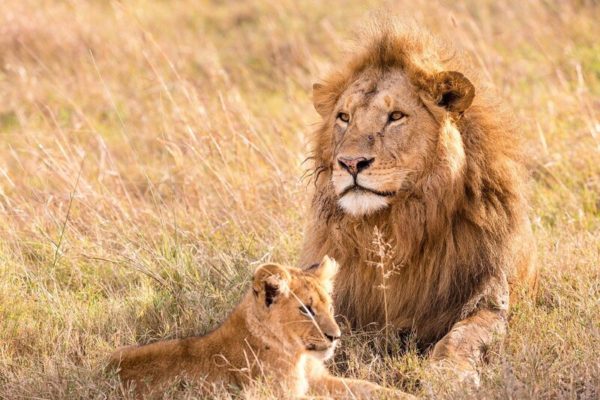- African Development Bank (AfDB) and the Green Growth Knowledge Platform (GGKP) received $273,439) grant from MAVA Foundation to mainstream natural capital in development finance in Africa.
- The grant to African Development Bank (AfDBand GGKP will support activities to push the business case for natural capital on the African continent and build the capacity for adoption of natural capital approaches in decision-making through a Natural Capital Academy.
- AfDB’s engagement in the initiative cuts across various departments and complexes working on infrastructure development, energy, climate and green growth, sovereign risk and investment, capacity development, and is being led by the Bank’s African Natural Resources Centre.

The African Development Bank and the Green Growth Knowledge Platform (GGKP) have been awarded a two-year, CHF 241,875 ($273,439) grant from the MAVA Foundation to mainstream natural capital in development finance in Africa.
MAVA, a philanthropic foundation, promotes the conservation of biodiversity and advocates for sustainable economies in the Mediterranean, West Africa and Switzerland.
The grant will support activities to develop a business case for natural capital among multilateral development banks, scale up the application of natural capital in infrastructure finance, integrate green growth and natural capital in African sovereign credit ratings, and build the capacity for adoption of natural capital approaches in decision-making through a Natural Capital Academy.
Natural capital is the stock of renewable and non-renewable natural resources, such as plants, animals, air, water, soils and minerals that combine to provide benefits to people and support life.
Nature-based solutions are emerging as essential climate-change mitigation and adaptation strategies in Africa, with a growing recognition that protecting ecosystems could provide at least a third of the climate mitigation needed by 2030 under the Paris Climate Agreement.
Vanessa Ushie, Manager of the Policy Analysis Division in the African Natural Resources Centre of the African Development Bank, noted that: “the natural capital mainstreaming initiative offers a strategic opportunity for the AfDB to embed nature and natural capital at the heart of decision-making on development planning, investments, and infrastructure finance in Africa.”
The case for centering natural capital in investment decisions on the continent is clear. In most African countries, natural capital accounts for between 30% and 50% of total wealth. In sub-Saharan Africa, over 70% of people depend on forests and woodlands for their livelihoods.
Through its strategic frameworks such as the High 5s and Ten-Year Strategy (2013-22), the Bank has prioritised the management of Africa’s natural resource assets to foster inclusive growth and the transition to green growth, recognizing the fundamental role of natural capital in meeting its regional and global ambitions on climate, biodiversity and sustainable development.
The vision for this grant is to crowd-in additional resources to complement existing interventions on natural capital. The Bank and GGKP will jointly administer the grant and coordinate implementation of project activities under an existing bilateral partnership and established technical cooperation. The Worldwide Fund for Nature (WWF), a major implementing partner, will deliver specific components and activities.
The Bank’s engagement in the initiative cuts across various departments and complexes working on infrastructure development, energy, climate and green growth, sovereign risk and investment, capacity development, and is being led by the Bank’s African Natural Resources Centre. The initiative is particularly relevant as Africa looks ahead to the post-COVID-19 era.
“For Africa to build back better after COVID-19, new investment models and practices that promote a better use of the values provided by natural capital will be critical to engendering a green recovery,” Ushie said.
The project involves the participation of a broad range of multilateral partners which will play technical advisory and complementary roles. These include the International Institute for Sustainable Development (IISD), the UN Environment Programme (UNEP), the German Federal Ministry for Economic Cooperation and Development (BMZ), the German Development Agency (GIZ), Capital Coalition, Economics for Nature (E4N) and the Green Economy Coalition.
(Source: AfDB).

